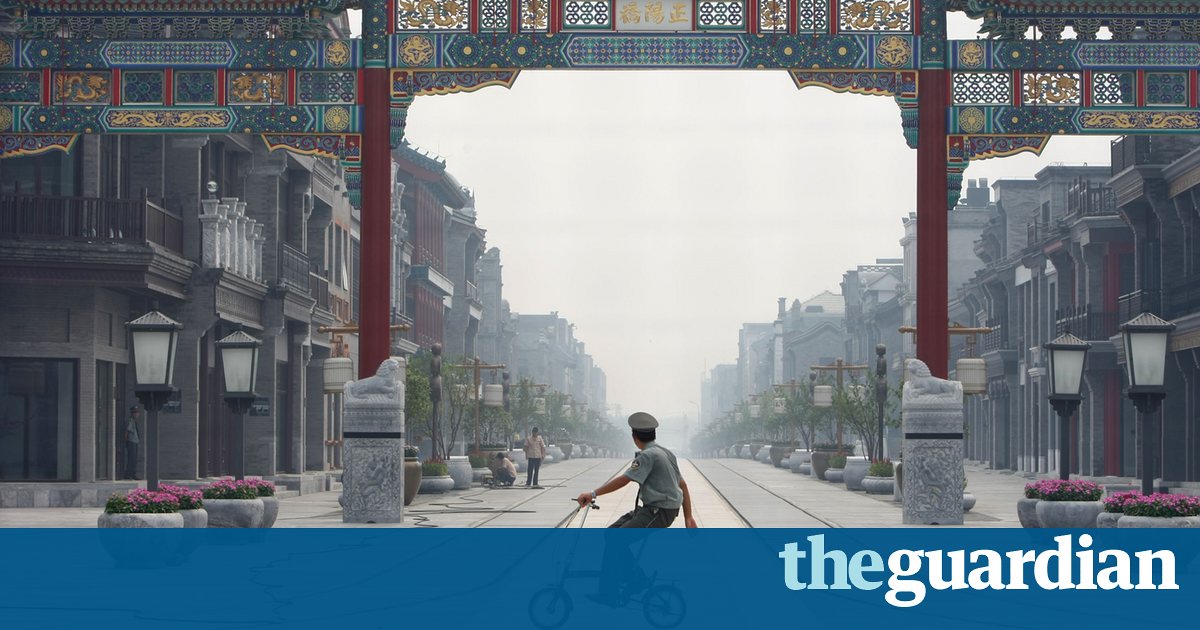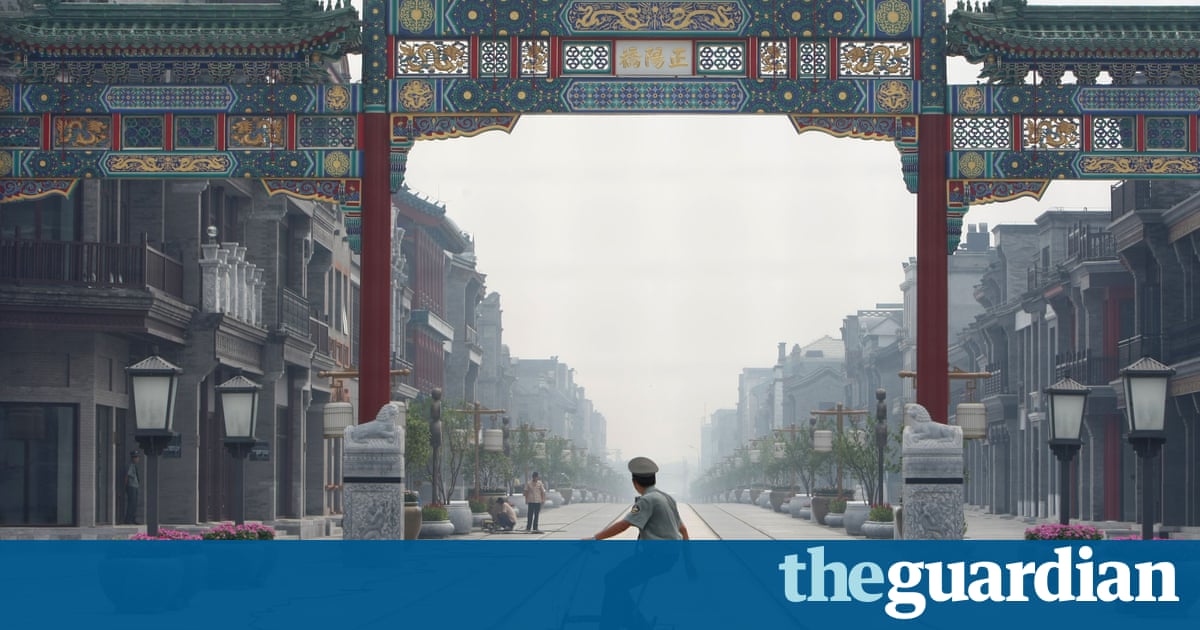China to rein in outward investment as domestic growth stalls

Government to make it easier for firms abroad to invest in China and tougher for Chinese companies to buy assets overseas to contain capital outflow

Beijing has signalled plans to curb Chinese firms investment in foreign assets, after revealing that companies from China are on course to spend 1.12 trillion yuan (130bn) on everything from British football clubs to a Hollywood film producer in 2016.
Companies from China ramped up their spending on overseas assets during the year, as a weakening domestic economy saw investors turn their attention overseas. A diverse array of targets included the maker of Godzilla, Aston Villa Football Club and the pub in which former prime minister David Cameron and Chinese premier Xi Jinping once shared a pint.
The spending spree boosted non-financial overseas investment 55% in the first 11 months of 2016, putting Chinese companies on course to spend 130bn this year, compared with 86bn in 2015, said commerce minister Gao Hucheng.
While foreign investment has soared, the amount of money flowing into the country is set to remain broadly flat at 92bn. This means the difference between investments abroad and those coming into China has reached an unprecedented 39bn.
The widening gap has triggered concerns about capital flight, where investors send their money out of the country rather than investing it to spur domestic growth. Gao signalled that Beijing would move to address the investment gap by reining in Chinese firms overseas spending and making it easier for firms from abroad to access the Chinese economy.
He said the government would promote the healthy and orderly development of outbound investment and cooperation in 2017, in remarks at a conference that were published on the commerce ministrys website. In November it was reported that China was preparing a clampdown on non-Chinese mergers and acquisitions.
Separately, the ministry said on its blog that China would sharply reduce restrictions on foreign investment access in 2017 to make it easier for overseas firms to spend their cash in the Peoples Republic. No details were given on what restrictions would be changed.
Major Chinese investors have spread their investment around the world and across multiple sectors during 2016. One of the most high-profile purchases was part of a multi-billion dollar bet on high-end US real estate by Chinese buyers. Insurer Anbang spent $6.5bn (5.3bn) on luxury group Strategic Hotels & Resorts from private equity group Blackstone, continuing a flood of Chinese money into prime US property.
The deal came two years after the same firm paid Hilton Hotels $1.95bn for the Waldorf Astoria in New York, a landmark art deco building ranked among the worlds most fabled hotels.
British assets have also proved tempting for Chinese firms and wealthy businessmen looking to add to their already sizeable clutch of UK investments. State-backed China General Nuclear took a 30% stake in the 24bn Hinkley Point C nuclear power plant, helping Frances government-owned energy group EDF fund the project.
While Hinkley was the highest-profile Chinese foray into the UK, its investors have also showed they are partial to English football clubs, particularly those from the West Midlands. Entrepreneur Guochan Lai bought West Bromwich Albion for a sum thought to be between 150m and 200m earlier this year. Businessman Tony Xia spent 76m to buy Aston Villa, even after the club had been relegated from the Premier League, vowing to restore the club to its former glory. Investment group Fosun International paid 45m to gain control of Wolverhampton Wanderers.

Among the larger British acquisitions by Chinese firms in 2016 was the 1.4bn that travel firm Ctrip.com paid for flight comparison website Skyscanner. The takeover was announced just a day after the chancellor, Philip Hammond, promised to stem the flow of British firms being sold to foreign investors before reaching their full potential.
Government-backed SinoFortone sealed a much smaller but diplomatically significant deal when it bought a 16th-century Buckinghamshire pub for an undisclosed fee. The Plough at Cadsden, Buckinghamshire a rural tavern near Chequers, the official country retreat used by British prime ministers hosted former PM David Cameron and Chinese premier Xi Jinping during a diplomatic visit that saw them set the world to rights over a pint of Greene King IPA.
Chinese investors were also involved in the consortium that agreed to pay 13.8bn by a majority stake in the National Grids gas pipeline network.
This years deals increase the scale of investment into the UK from China, which already owns or holds large stakes in household names such as Weetabix, Pizza Express and Thames Water.
One huge deal that was agreed this year but may not complete until early 2017 is ChemChinas $43bn takeover of Swiss seeds and pesticides giant Syngenta. The deal would be Chinas largest ever foreign acquisition and is seen as a key plank of its strategy to ensure food security for its huge population.
The bright lights of Hollywood have also attracted Chinese money. Investment group Wanda, headed by Chinas richest man Wang Jianlin, paid $3.5bn for the Legendary studio behind films including Godzilla and Pacific Rim. Elsewhere, copper-processing company Anhui Xinke New Materials proved a more unlikely investor in the silver screen. The firm paid $350m for the company that owns Voltage, the studio behind Oscar-winning films The Hurt Locker and Dallas Buyers Club.
Five major Chinese investments in 2016
6bn China General Nuclear will have a 30% stake in the UKs Hinkley Point C nuclear power project, approved this year.
5.3bn Insurer Anbang bought Strategic Hotels & Resorts from private equity group Blackstone.
2.8bn The Dalian Wanda conglomerate bought Legendary studios, which made Godzilla and Pacific Rim.
1.4bn Flight comparison site Skyscanner sold to Chinese travel firm Ctrip.
300m Chinese businessmen and investors spent a combined 300m on three West Midlands football clubs, West Bromwich Albion, Aston Villa and Wolverhampton Wanderers.